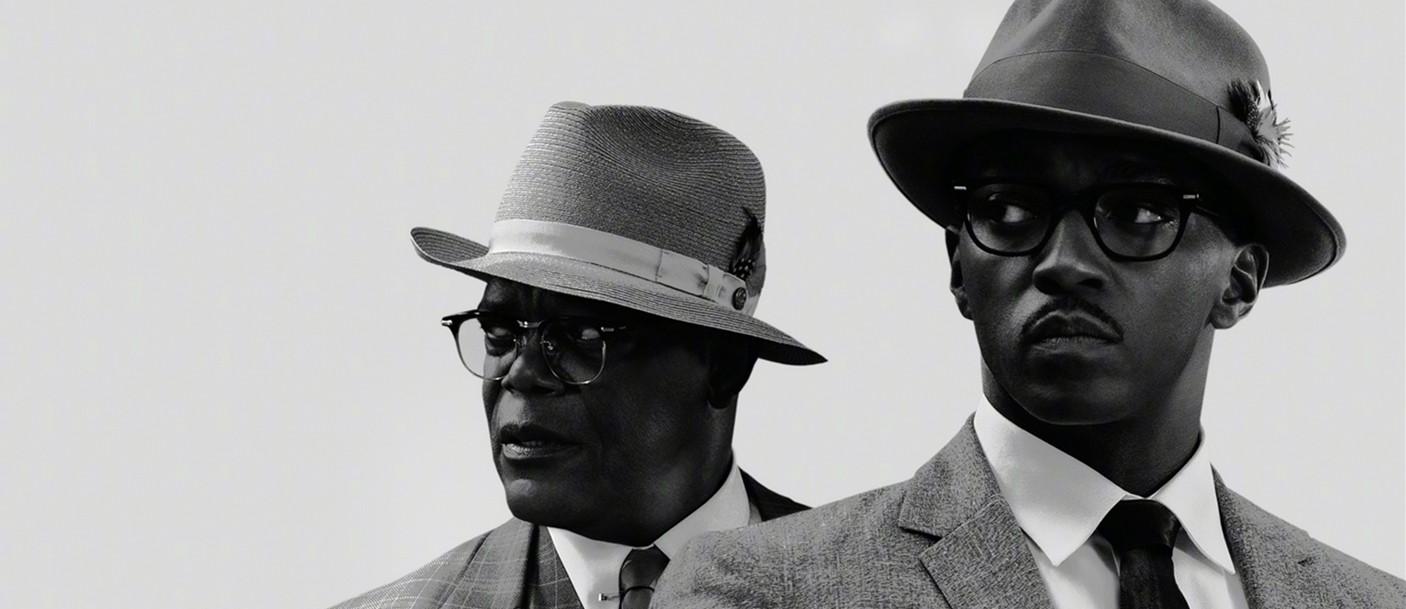
At the end of 2019, Apple TV+ hoped to win the awards season with "The Banker", but unfortunately, due to a producer accused of sexual assault and the film itself was criticized for tampering with the facts, the film ultimately failed to get attention in last year's awards season. To make matters worse, due to the outbreak of the epidemic, the limited screening, which was scheduled for march for two weeks, was also greatly affected. Now, 20 months later, "The Banker" has finally been released in China, and if you have ever questioned why Apple Streaming media bought the movie, you should now understand that this is actually a very fascinating historical biopic, not as serious or bitter as it seems.
If you haven't heard of Bernard Garrett and Joe Morris, I suggest you go to Baidu after watching the movie. The two savvy entrepreneurs, played by Anthony McKay and Samuel Jackson, broke through the racial limits of the Los Angeles housing market in the 1950s, owning more than 175 downtown properties at their peak, making them two of the richest African Americans of the time. Their strategy is to recruit and train the white Man Matt Steiner (Nicholas Holt) to act as a striker, to represent them and complete deals they can't participate in.
The story is truly fascinating, mostly from Bernard's point of view— starting as a shoe shine boy, eavesdropping on insiders talking about financial news outside the bank in the small town of Willis, then growing up and moving to Los Angeles with his wife Eunice (Nya Long) in search of wealth, then working with an Irish businessman (Colm Mini) to buy a property in a white neighborhood, and finally working with Joe to bid on the prestigious Bankers Mansion to balance the banking institutions that settled in the building.
The film's director and co-writer, George Nofy, was a former writer for Steven Soderbergh's Twelve Arhats, and this time he was clearly inspired by Soderbergh to approach the film in a comedic way. The seemingly mismatched combination of Bernard and Joe brings a lot of fun, the former is low-key, calm, rational; The latter is noisy, nagging, and unrestrained. Especially when they started teaching working-class Steiner golf, etiquette, scotch drinking and algebra, it was even more interesting. Under Nofi's brilliant direction, montage footage involving details of financial manipulation such as cap rates, reverse multiplication, and loan plans is surprisingly fascinating.
It wasn't until the second half of the film that its radical side was revealed, with Bernard revealing a deep-seated belief in the acquisition of Willis Bank to improve their lives by giving people in his community access to money and housing. Bernard was not a martyr, but he left his mark on a lesser-known chapter in american civil rights history. Their careers will ultimately fail, not so much because of Bernard's personal arrogance as because of overestimating the people around him. Even so, the plot shift in the Senate committee is not as dramatic as their earlier successes, and some may even feel that the final social critique is somewhat mediocre.
Maybe the last part of the script is a bit discouraged, but the actor's acting skills are always online. McKay plays Bernard with his signature composure, which complements the radiant Jackson. Similarly, Jackson's relaxed charm and his consistent self-braggadocio complement McKay perfectly. Sandwiched between McKay and Jackson, Holt has little room to shine, but he makes the most of the characters the story gives, especially in the final act.
Although The Banker has been influenced by some negative press before, there is no doubt that there are still many delightful highlights, including superb performances by McKay and Jackson, engaging true stories, and Nofy's directing style. Although the ending could have been heavier, there is no doubt that The Banker is the kind of old-fashioned academic film that those who pay attention to the charm of the story will like. Even if it is 20 months late, it is still worth seeing.